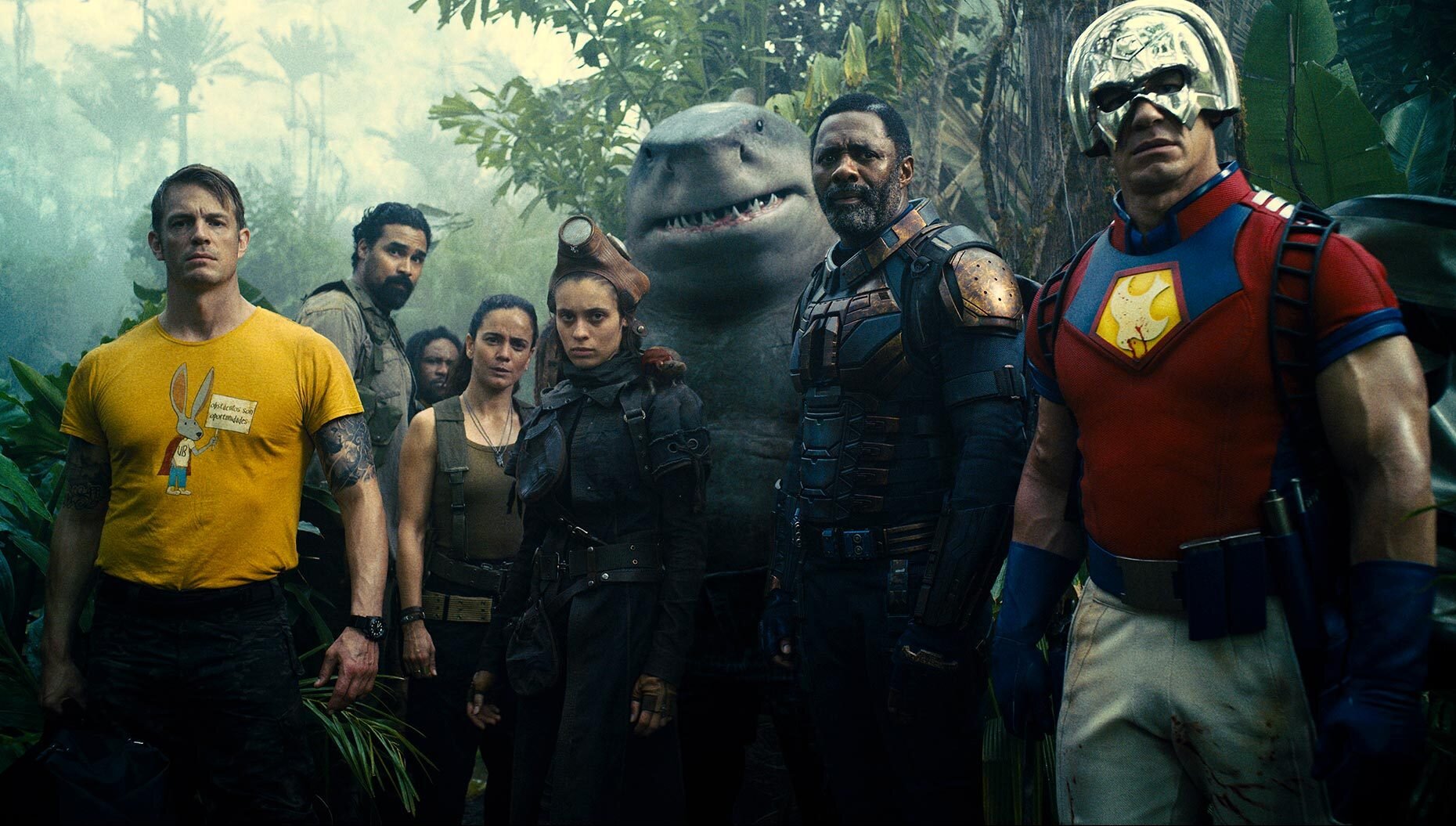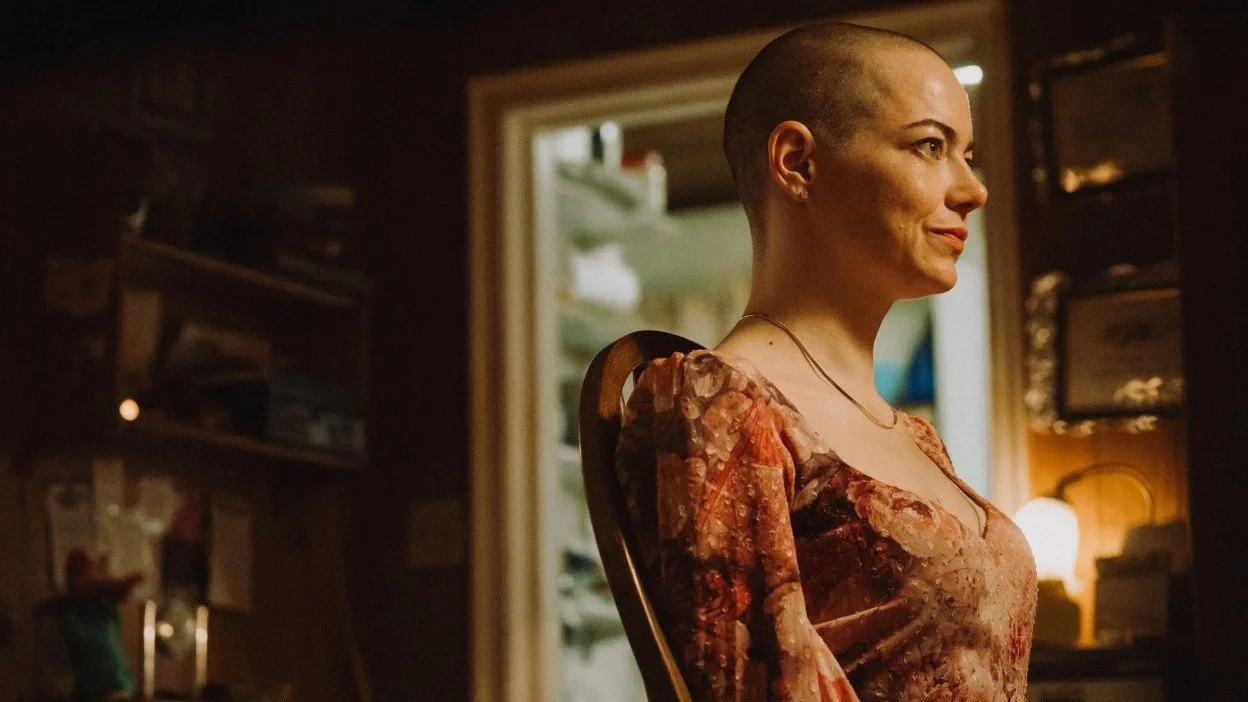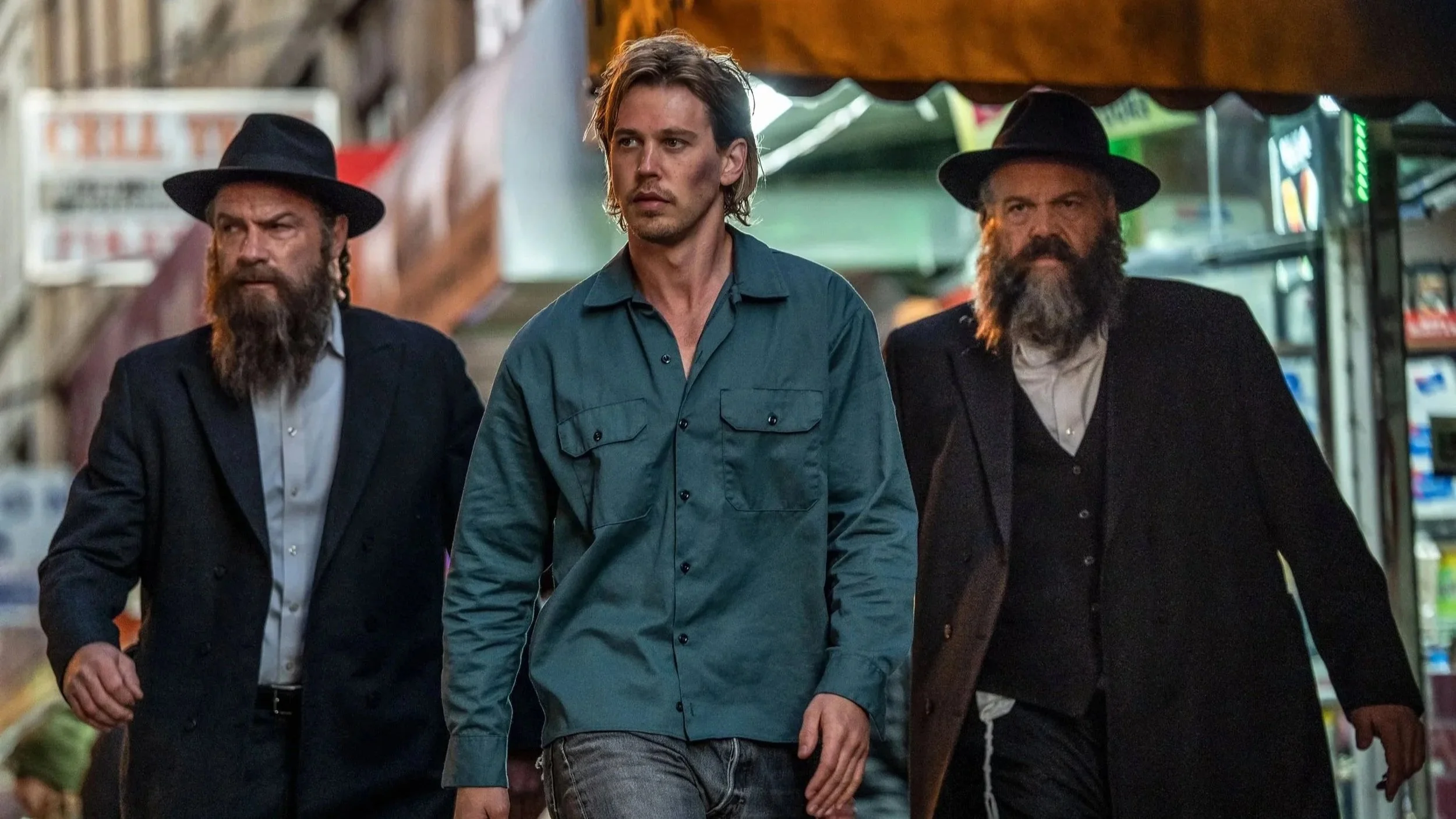Review: The Suicide Squad (2021)
The Suicide Squad is very much the film that people expected its 2016 predecessor to be. It is funny, ultra violent, a bit off-kilter, and happily occupies its place on the periphery of the DCEU. However, in responding to the correction it offers to the approach of the previous film, people have overstated its freshness or originality. It’s good, but it’s not something wholly new; The Suicide Squad is essentially Guardians of the Galaxy with the same goofy humour and killer needle drops, but an R-rating and references to Superman instead of Thanos. The film’s strengths—its raucous humour and willingness to engage with violent and dark content—mirror its shortcomings, as it often mistakes childish trolling as a substitute for wit.
The film’s success all depends on the viewer’s tolerance for director James Gunn’s brand of edgelord comedy, which uses foul language, obscene violence, and absurdity to get a rise, and a laugh, out of the viewer. It’s often very amusing, but not every joke or set piece is a hit. As is the case with other comedies of this sort, most notably the wildly popular animated series Rick and Morty, The Suicide Squad can occasionally grow enamoured of its own grotesquries and sacrifice pacing or coherence in the process. Still, there’s much to admire in its weird approach to superhero filmmaking.
The plot is essentially that of the original: government agent Amanda Waller (Viola Davis) sends a group of dangerous supervillains (including Idris Elba’s Bloodsport, Margot Robbie’s Harley Quinn, John Cena’s Peacemaker, and Sylvester Stallone’s King Shark) on a secret mission into a foreign country (the fictional Latin American island, Corto Maltese). If they succeed, they live. If they don’t, they die—either by the hands of the foreign power they’re invading or by the bomb implanted in their brains by the US government.
The film’s opening is a prime example of correcting the mistakes of David Ayer’s 2016 film. We meet the various new members of the so-called Suicide Squad, including a few holdovers from the original including Harley Quinn and Jai Courtney’s Captain Boomerang, but all in one breezy montage set to pop music that culminates in a wide shot of these various antiheroes heading out on their mission against a backdrop of the American flag. The original film spends around 20 minutes introducing every character in a series of repetitive individual sequences, but Gunn is smart enough to condense and coalesce everything into one sequence in order to build momentum.
This all leads to a fake-out opening fight and a reintroduction of sorts that resets the table and catches us up to the action. From there on out, the film alternates between action set pieces played for laughs and smaller character moments that let us know what a bunch of oddballs these characters are, before building to a genuinely goofy action climax featuring one of DC Comics’ dumbest villains. The core cast is good. By this point, the success of Margot Robbie as Harley Quinn is well-established. She was the best part of the original film and a strong enough character to justify her own star vehicle, 2020’s Birds of Prey. She’s once again a standout, leveraging her beauty and natural charism to balance her off-beat delivery of lines and erratic energy.
Idris Elba is a successful replacement for Will Smith (playing a different character, but occupying essentially the same role as Deadshot in the 2016 film), channeling a world-weariness in his reluctant hero bit. There’s more than a touch of a 1950s Western antihero to his Bloodsport. John Cena taps into his gift for deadpan humour as the psychotically single-minded Peacemaker, and Joel Kinnaman is allowed to inject some personality to the role of Rick Flagg, which he reprises from the original film.
Newcomers Daniela Melchior as Ratcatcher 2 and David Dastmalchian as Polka-Dot Man conjure some pathos as characters with immensely dumb powers (Gunn includes them precisely because they’re some of the dumbest characters from the comics). All these characters are such losers that you can’t help but feel sorry for them, which helps Gunn generate some sympathy for characters who do objectively awful things on screen. It’s also important that these characters are presented as villains, which makes all the awful behaviour on screen more palatable.
Guardians of the Galaxy Vol. 2 failed spectacularly because it could never reconcile the heroism of its characters with its humour and action centred on gleeful destruction and death. The Guardians are assholes, but not monsters, so that film’s desire for you to cheer them on as they massacre villains and chuckle at their casual brutality completely worked against its desire for you to admire them and be moved by their redemption in the end. Luckily, in The Suicide Squad, the villainry of the characters is front-and-centre throughout. You may feel sorry for them and acknowledge that they’re not as bad as some of the other villains they encounter, but the film never crosses the line into trying to convince you they’re genuinely heroic. Thus, Gunn and company can rely on the charisma of the actors to make you like the characters, without ruining the joke with unchecked sentimentality.
As stated above, much of the film relies on shocking bursts of violence or obscene behaviour to generate laughs. Some sequences are hilarious, such as the opening fight, which generates its humour off watching characters employ absurd powers and betray their tactical idiocy. Likely the film’s standout comic sequence is a raid on a paramilitary camp in the jungle in which Bloodsport and Peacemaker compete to see who can kill the camp’s soldiers in the most impressive ways. The sequence builds to a pitch-black punchline that embodies the kind of edgy humour the film thrives off of. Other moments are not so successful. A recurring visual gag about Polka-Dot Man’s abusive mother is cringeworthy, while other moments simply embody the lazy tactic of saying absurd lines as fast as possible or peppering in ample F-bombs to get a laugh.
As for the action, The Suicide Squad is no marked improvement on its predecessor. Gunn is a gifted comedic writer, but not the strongest stylist, so his action sequences rarely dazzle in terms of blocking or pacing. The best moments come when he’s able to imbue the action scenes with his strong character work. For instance, during a prison break, Harley Quinn kills an entire hallway of guards like she’s the Terminator. As she fires off her twin machine guns, our perspective of the scene starts to blend with Harley’s, until colourful flowers start bursting out of the gun barrels and cartoon birds happily flutter around her shoulders. The scene is dazzling in its imagination, but also acts as an R-rated rebuke to the tameness of past DCEU films, particularly the Birds of Prey police station scene in which Harley can only shoot police officers with bean bag grenades instead of bullets. Of course, the change in on-screen tactics is likely a silent admission that in an American blockbuster, a filmmaker can merc dozens of Latin American soldiers, but dare not kill even one of the boys in blue. Gunn has to smuggle in a rebuke of the American Empire through the film’s handling of Amanda Waller, but even that rebuke can only go so far.
All told, The Suicide Squad improves on its predessor and does what it sets out to do. It’s funny and inventive and even occasionally inspired, but it’s also undeniably adolescent. It’s another successful example of the DCEU doubling down on personality and letting individual filmmakers dictate tone and style while accepting the inconsistencies that are produced as a result.
6 out of 10
The Suicide Squad (2021, USA)
Directed by James Gunn; written by James Gunn, based on the DC characters; starring Margot Robbie, Idris Elba, John Cena, Joel Kinnaman, Sylvester Stallone, Viola Davis, David Dastmalchian, Daniela Melchior, Jai Courtney, Peter Capaldi.



Noah Baumbach has lost his satiric edge in this fluffy character piece starring George Clooney.